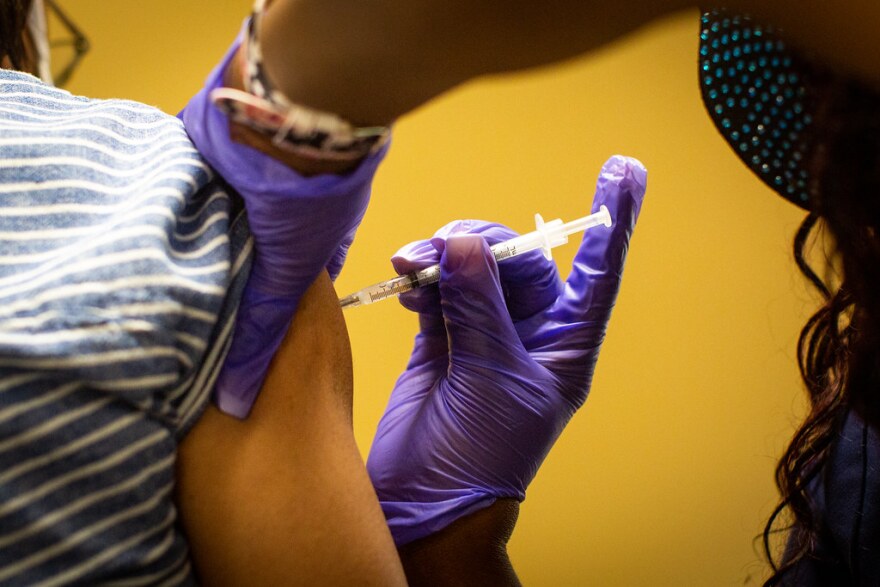Austin-Travis County returned to Stage 3 of the COVID-19 risk-based guidelines Thursday. The change was made after the detection of four cases of the more infectious Delta variant and recent increases in new COVID-19 cases and hospitalizations.
The more restrictive Stage 3 guidelines call for people who are immunocompromised or considered high-risk for chronic disease to avoid gatherings, travel, shopping and dining out unless essential. And if it is essential, Austin Public Health recommends they wear a mask.
Austin-Travis County Health Authority Dr. Desmar Walkes said the seven-day moving average of new cases recently tripled from 30 to 90. Similarly, average daily hospital admissions went from seven to 21. Walkes said ICU bed capacity is strained largely due to a shortage of staff and more patients with respiratory illnesses being hospitalized as fewer people wear masks and travel increases.
Austin Mayor Steve Adler said most of those hospitalized for COVID-related causes were not vaccinated. And the rising number of infections present a challenge to the overall healthcare system.
“Maintaining spaces in hospitals and ICUs is important for reasons that go beyond COVID,” Adler said. “So that there are beds for people having heart attacks or involved in automobile accidents.”
Interim Director for Austin Public Health Adriene Sturrup reiterated the need for people to get vaccinated to reduce the risk of death and severe illness as well as mitigate the threat of variants.
“Viruses can’t mutate if they can’t replicate,” Sturrup said.
Pediatric cases are also on the rise, and COVID-19 vaccines are still not available for children under 12 years of age. Walkes encouraged vaccinating those children who do qualify for a dose. She said younger children or those unable to get vaccinated should avoid poorly ventilated indoor spaces, gatherings and travel unless essential. If it can't be avoided, they should wear a mask.
Walkes said it is important to return to practices that helped reduce case numbers during previous spikes in January and last July, including wearing masks, washing hands, socially distancing, and staying home when sick. Walkes said it was also important for people to continue to get tested and see their health care professional if they are not feeling well.
Adler said a return to normal life will take work.
“We cannot pretend to be done with a virus that is not done with us,” he said.
Watch the video of the news conference below.





